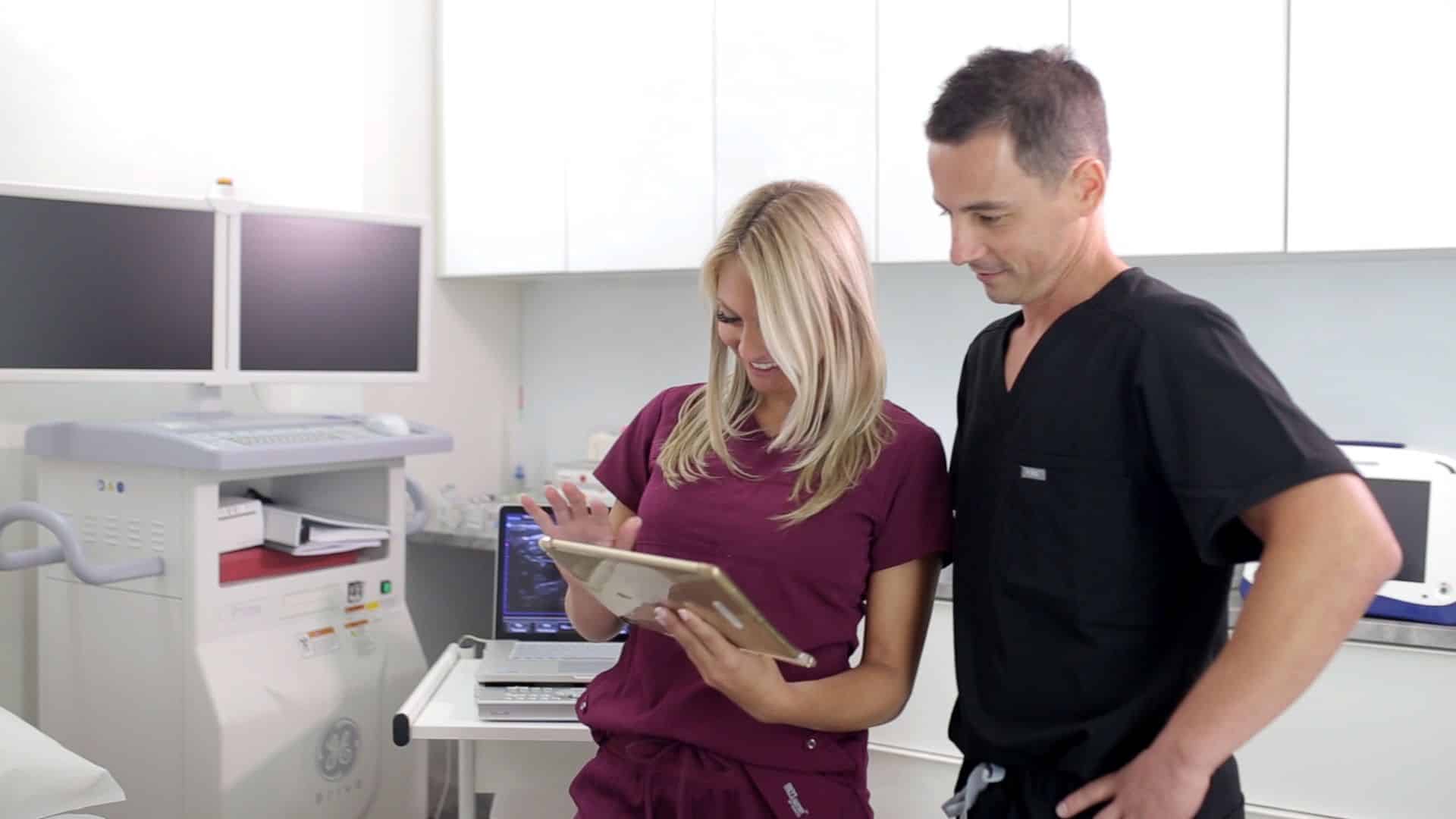Unsure Whether to Start Looking for Sciatica Pain Treatment Near You in Clifton?
July 12, 2021
Sciatica Specialist Answers 6 Questions About Radiculopathy
The nervous system in our body is very complex and needs to function perfectly to provide seamless communication between different body areas. Due to several reasons, a nerve can get pinched, causing a sharp pain that is often accompanied by numbness. This is called radiculopathy and happens usually when a bone, muscle, or cartilage presses against a nerve.

While pinched nerves are not always a reason to see a doctor, improperly addressing the issue may leave you in pain for several weeks. If over-the-counter medicine does not seem to alleviate the symptoms, seeking expert medical advice should be the next step. In addition to medicine, light stretches may also help stimulate blood flow and improve movement.
Radiculopathy can often happen as a result of another health condition. For example, herniated discs are a common cause of sciatica – also known as lumbar radiculopathy. In most cases, this affliction requires you to see a doctor and, with the doctor’s help, to address the condition that is causing nerve pain.
If you are looking for sciatica pain treatment near you in Clifton, the Harvard-trained doctors at Pain Treatment Specialists are here to help. Before you book an appointment, we want to make sure you understand more about your condition, so Dr Laura Lombardi, Dr Shane Volney, and Dr George Hanna, our board-certified doctors are here to answer some of the most pressing questions about radiculopathy.

Can radiculopathy occur anywhere in the body?
According to Dr Laura Lombardi, as the nervous system does travel throughout the entire body, it is possible to get a pinched nerve in nearly any area of the body. Most patients, however, report experiencing it in the following regions:
- Neck: pain starts in the neck area, but the tingling sensation can stretch throughout the arms and shoulders as well.
- Lower back: herniated discs are usually at fault for pinching the sciatic nerve, which is the longest nerve in the body, so it is common for the pain to extend to the hips and legs as well.
- Leg: pinched nerves can lead to chronic leg pain if left unattended and the nerve gets permanently damaged in the process
- Hip: pinched nerves in the hip region can lead to shooting pain, which can last for several days.
- Shoulder: the most common cause for shoulder radiculopathy is when the upper spine puts pressure on a nerve root either due to an injury or a medical condition.
- Wrist: people who type a lot at the computer are prone to experiencing writs radiculopathy, which can lead to carpal tunnel syndrome if not properly taken care of.
How long do the symptoms last?
According to Dr Shane Volney, the length of the recovery process depends on a lot of different factors. These factors include where the radiculopathy manifests, what is pinching the nerve, the type of treatment you choose to apply, as well as your overall health and lifestyle. For example, if you are required to do the heavy lifting on a daily basis and you continue to do so while dealing with a pinched nerve, the recovery process may be lengthier.
If the pinched nerve is a result of an acute condition, such as poor posture, injuries, bad sleep, or physical effort, expect the pain to alleviate in a few days with non-prescription medicine. However, if the condition that leads to radiculopathy is chronic, you will have to take care of it with proper medical advice in order to eliminate the pain for good.
What type of treatment is available?
If you want to take care of your pinched nerve at home, Dr George Hanna recommends alternating ice and heating pads. This can reduce inflammation and provide pain relief. Getting enough rest and making sure you sleep in a comfortable position is also important. As you see pain starts to fade, begin doing some light stretches to encourage blood flow, aid muscle recovery, and prevent stiffness.
As for medical treatment, this is something your back doctor will decide based on the set diagnosis. If you schedule an appointment at our Clifton pain clinic, one of our sciatica specialists will probably recommend a minimally invasive treatment such as steroid injections is enough to reduce inflammation and get rid of the pain. In addition to that, expect your doctor to also pair these procedures with physical therapy to ensure a smooth recovery process.
Are there any risk factors?
Pinched nerves are quite common and can happen even more frequently as you age. This happens due to changes in the body and degeneration of bone and tissue, making age the primary risk factor for developing radiculopathy.
In general, anything that increases the chances of a nerve or nerve root getting compressed counts as a risk factor. This includes, but is not limited to:
- Excess weight
- Pregnancy
- Accidents and injuries
- Performing repetitive tasks
- Prolonged sitting
- Diabetes
What can I do to prevent radiculopathy?
Pinched nerves can be a sign of major concern, but only on rare occasions. Most frequently, they go away with proper treatment. Still, if there is pressure put on the nerve for a long period of time, it can cause nerve damage.
If you want to prevent this from happening, you need to eliminate any risk factors. Dr Lombardi recommends keeping an eye on your weight and posture, take frequent breaks if you are performing repetitive tasks, adjust your position if you are sitting or standing for a long period, and exercise to increase strength and flexibility.
When should I see a doctor?
Pinched nerves don’t always require you to see a doctor, but if no at-home remedy works, it’s time to book an appointment with a pain specialist. Keep an eye on your symptoms, and if you don’t happen to see any positive change or if your condition worsens, give the nearest pain doctor a call to get to the root cause of the problem. Book an appointment with one of the Harvard-trained doctors at Pain Treatment Specialists, in Clifton, on Route 46E, just past the Ford dealership.
Book a Consultation
Scheduling a consultation with one of our pain treatment specialists is one of the best ways to determine the proper solution for pain relief.
Meet Our Team of Back Pain Specialists
All of our Pain Doctors in New Jersey are Harvard Trained and Board Certified in Pain Management

Back Pain Doctor Clifton & West Orange NJ
Dr. George Hanna
Dr. Hanna is a Harvard Trained back specialist in New Jersey and New York. He serves as Medical Director of Pain Management.

Back Pain Doctor Clifton & West Orange NJ
Dr. Laura Lombardi
Dr. Lombardi is a Harvard Trained back pain treatment doctor, currently seeing patients in Clifton and West Orange, New Jersey.

Back Pain Doctor Clifton & West Orange NJ
Dr. Shane Volney
Dr. Volney is a Harvard Trained back treatment doctor seeing patients in the NJ areas of Clifton & West Orange, and in NYC.

Back Pain Doctor Clifton & West Orange NJ
Dr. Michael Nguyen
Dr. Nguyen is Harvard Trained and Board Certified in Pain Management. His pain center accepts major medical insurances and Medicare.

Dr. George Hanna

Dr. Laura Lombardi
Dr. Lombardi is a Harvard Trained back pain treatment doctor, currently seeing patients in Clifton and West Orange, and Paramus New Jersey.

Dr. Shane Volney
Dr. Volney is a Harvard Trained back treatment doctor seeing patients in the NJ areas of Clifton & West Orange, and in NYC.

Dr. Michael Nguyen
Dr. Nguyen is Harvard Trained and Board Certified in Pain Management. His pain center accepts major medical insurances and Medicare.
